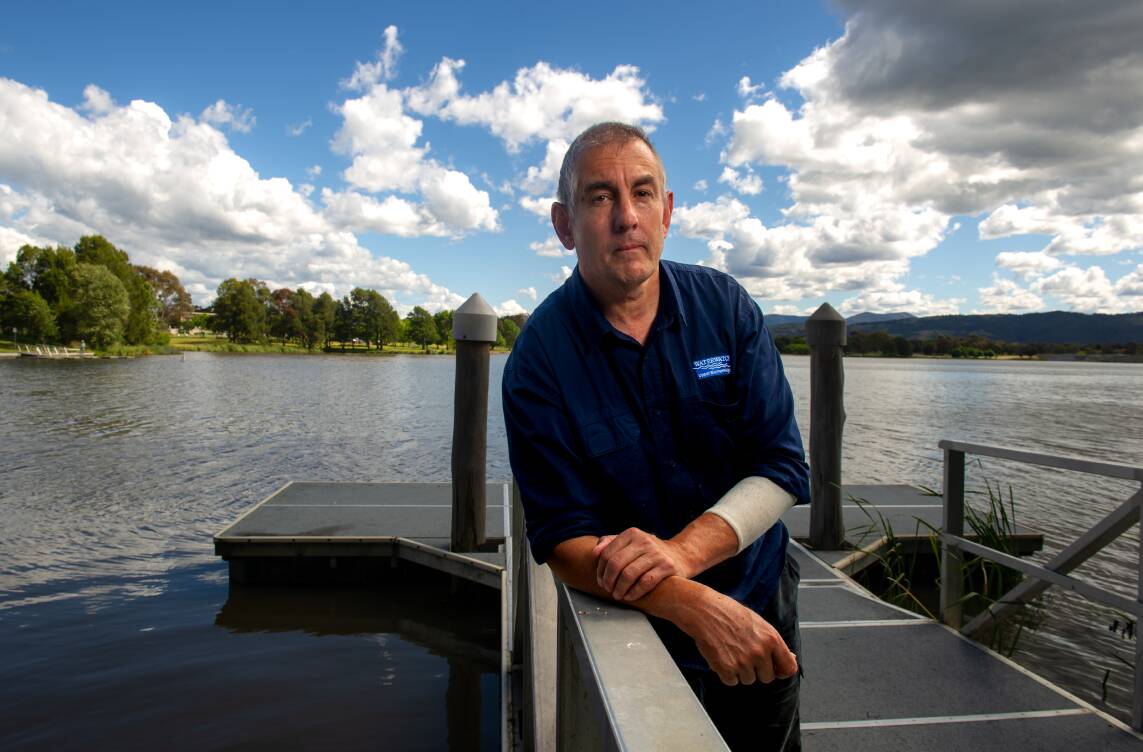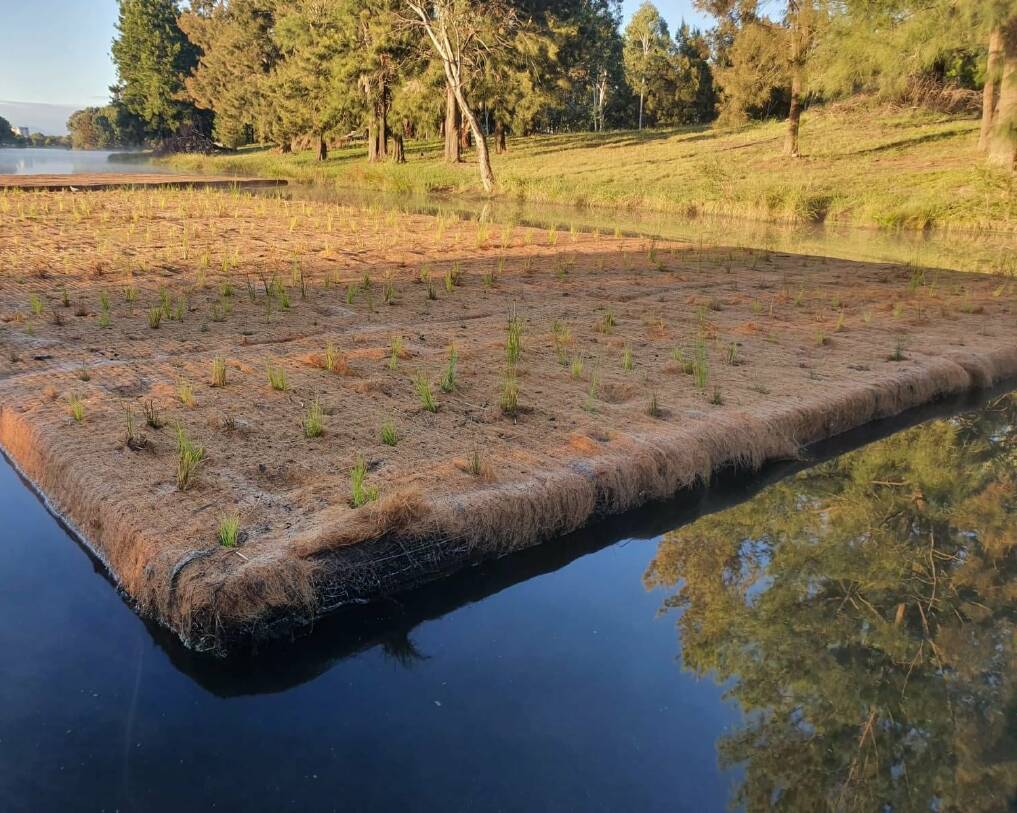
The ACT government has agreed to do more to protect the health of Lake Tuggeranong including exploring improvements to its mowing program to prevent lawn clippings entering drains, following a motion put forward by Greens MLA Johnathan Davis.
Excessive nutrients flowing into the lake in the form of grass clippings are thought to contribute to blue-green which renders the lake off limits to users for months of the year.
Mr Davis raised a motion in the Legislative Assembly on Thursday calling on the ACT government to improve clipping collection. He's proposed the use of mowers with catchers, increased rates of street sweeping, trialling a dedicated street-sweeping and post-mowing collection program or installing collection nets inside storm water drains.
"I don't think anyone - from the minister, through to transport city services, to our mowers themselves - want to contribute to the challenges in our lakes and waterways," he said.
"But the reality is they are."
Mr Davis said he, like so many others from Tuggeranong, got excited on the drive home down Atthlon Drive to see when the mowers had been through.
"Then to see the clumps of leaf litter and grass clippings sitting in the edges of the stormwater drains, I wonder how much of that has actually flowed into drains and how much is through the waterways and into the lake," he said.
Mr Davis said the government had increased its resources in an attempt to stay on top of the mowing program during the high-growth period. A result of higher than average rainfall.
"I don't want to risk spending a lot of money with the right hand and doing a lot of damage with the left hand," he said.
Mr Davis said the ACT was funding a program educating the public about the effect their backyard grass clippings had on the health of the lake.
"The ACT government has a responsibility to make sure it's leading by example and ensuring its own mowing program is reducing grass clippings and leaf litter making its way to our lakes and waterways," he said.

City Services Minister Chris Steel and Water Minister Shane Rattenbury agreed more could be done, the government voting in agreeance for Transport Canberra to explore additional methods to prevent clippings entering waterways.
Waterwatch Southern ACT Co-ordinator Martin Lind said high phosphorus measurements after big storm events indicated lawn clippings contributed to Lake Tuggeranong's ill health, however, it wasn't the only culprit.
"Whether it's leaf litter, whether it's grass clippings, whether it's soil, as well as vegetative matter from clippings and prunings, it's all going to contribute," he said.
"You've also got soil runoff and possibly other sources, including lawn fertilisers and field fertilisers, which are a possible source of prosperous as well."
The Commissioner for Sustainability and the Environment's most recent State of the Lakes and Waterways in the ACT report found Lake Tuggeranong often has poor water quality and regularly suffers from cyanobacterial blooms and high levels of faecal contamination.
University of Canberra is currently conducting a study to gain a better understanding of how run off from nearby ovals and backyards affects Lake Tuggeranong's health, with $1.5 million in funding from the ACT government.
A floating wetland was deployed in Village Creek just downstream of Athlon Drive last year in an attempt to improve water quality where organic matter was building up around a gross pollutant trap.
Additional funding was also set aside in the last budget to invest in 11 additional water assets across Tuggeranong and Belconnen.
Mr Lind said while a lot of work was being done to improve water quality under the Healthy Waterways program, those projects would take time before they showed real improvements.
He said with all the recent rain nutrient levels in Lake Tuggeranong were currently quite high, with excess nutrients likely flowing in from a main southern water system.
Speaking to the Canberra Times beside a wetland in Dickson which had recently been mowed, Mr Lind said the location didn't provide much hope for the rest of Canberra.
"If this is what's happening around the rest of the suburbs, the lawn clippings are certainly still here," he said.
We've made it a whole lot easier for you to have your say. Our new comment platform requires only one log-in to access articles and to join the discussion on The Canberra Times website. Find out how to register so you can enjoy civil, friendly and engaging discussions. See our moderation policy here.







